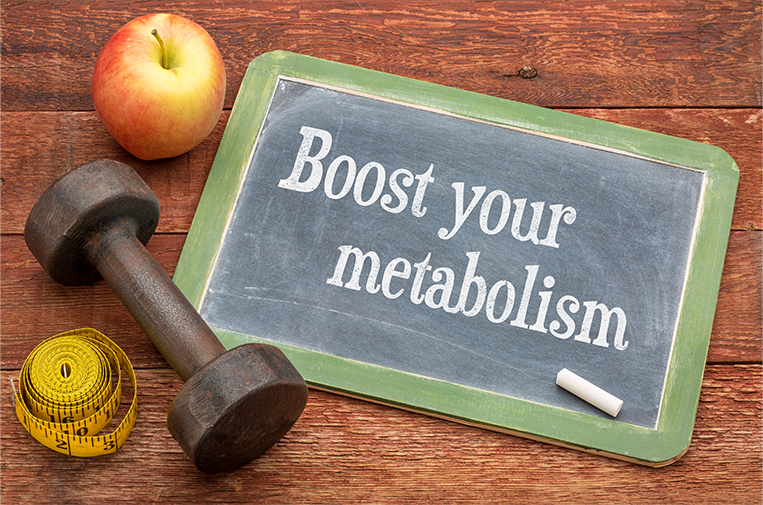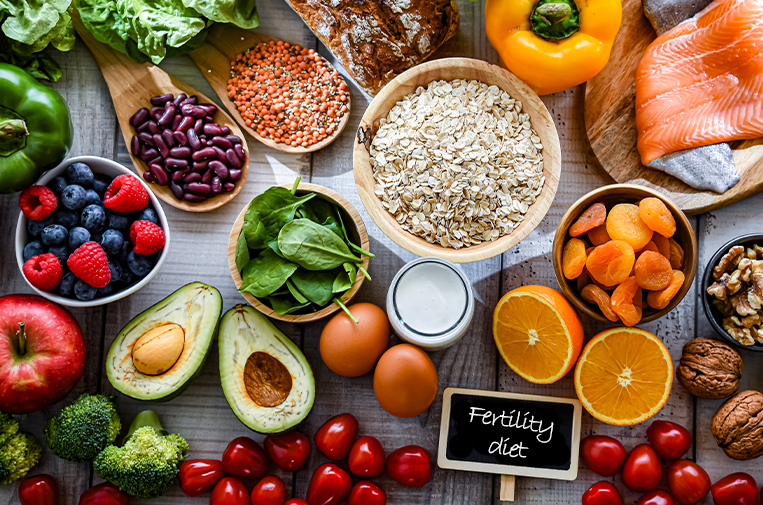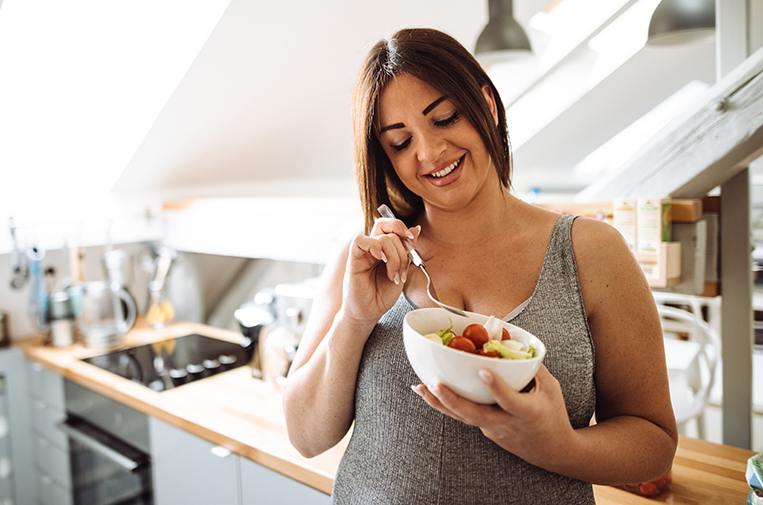Polycystic ovary syndrome (PCOS) can make it difficult to get pregnant, but the right PCOS diet can help you manage the condition and conceive
If you have PCOS, polycystic ovary syndrome, and you’re visiting our website, chances are you already know that women with PCOS are at increased risk for infertility.
PCOS, the most common endocrine or hormonal condition in women, affects as many as 1 in 10 women of childbearing age. About 7 out of 10 women with the syndrome have fertility problems.
The good news – and there is good news – is that, unlike other fertility issues that you have little control over, you can manage your PCOS. Eating the right healthy foods can help alleviate PCOS symptoms and increase your chances of having a baby.
What is PCOS infertility?
PCOS can cause infertility by affecting your metabolism and throwing your hormones out of balance. This can lead to irregular periods and ovulation, ovarian cysts, and even weight gain – all of which can make it harder to conceive.
Polycystic ovary syndrome is the most common cause of ovulatory disorders. Ovulation issues in women with the condition can be traced to insulin resistance. Anywhere from 35-80% of women with PCOS have insulin resistance, which causes insulin levels to shoot up and affects ovulation.
Inflammation, which affects reproductive hormone production and ovulation, is another byproduct of PCOS. Inflammation is related to obesity, though it’s hard to figure out what comes first, obesity or inflammation. We do know that people with PCOS are more likely to be overweight or obese. Obesity is linked to inflammation, and inflammation can contribute to PCOS.
“Eating right will help you get healthier, control your PCOS, and boost your chances of having a baby. What better motivation could there be?”
How can my diet help with my PCOS?
While there is no known cure for this disease, research shows that with healthy eating habits, you can self-treat your PCOS and even improve your chances of getting pregnant.
A recent review of scientific articles examined the relationship between diet and fertility among women with polycystic ovary syndrome. Positive dietary changes improved fertility and alleviated hyperandrogenism, the presence of excessive male sex hormones like testosterone that often plague those with PCOS. Low-carb diets seemed to work even better to improve pregnancy rates and optimize ovulation, and surprisingly, focusing on higher-fat foods may be particularly useful in this setting.
The bottom line? Your diet can help control inflammation, blood sugar levels, hormone imbalances, and weight: all are PCOS symptoms that contribute to infertility. Losing a few pounds – just 5-10% of your body weight – can help restore ovulation.
So what’s the best PCOS diet?
The best PCOS diet is the same diet we’d recommend to anyone with heart disease, diabetes, or cancer. Eat foods that lessen inflammation and don’t spike your blood sugar. That means a whole-food, plant-based diet that is low in carbs.
Whole foods are natural foods, not foods cooked up in a factory, and include:
- Colorful veggies and fruits, rich in antioxidants and nutrients
- Healthy fats like avocados, nuts and seeds
- Lean proteins like turkey, fish, chicken, and beans (try to eat some with every meal)
- Complex carbohydrates such as whole grains, legumes and nuts
- Fiber-rich foods like apples, broccoli, sweet potatoes, and berries (your gut helps regulate your hormones, and fiber from plants helps keep your gut healthy, combats insulin resistance, and helps you lose weight)
Whole foods fight insulin resistance and inflammation, contributors to infertility
First, let me dispel some myths about carbohydrates.
Not all carbs are created equal. Complex carbs, also known as “slow” carbs or low GI (glycemic index) carbs, release energy more slowly and will help stabilize your blood sugar instead of spiking it like simple carbs do.
Complex carbohydrates have high levels of a key nutrient that improves insulin sensitivity, decreases androgen levels (male hormones), and improves ovulatory function in people with PCOS.
Anti-inflammatory diets also have been proven to relieve symptoms of the condition. One study showed that people with PCOS who followed an anti-inflammatory diet for three months lost 7% of their body weight and showed significant improvements in cholesterol, blood pressure, and inflammatory markers.
Their reproductive health also improved: 63% of patients returned to having normal periods and 12% conceived while following the diet.
Another study focused on the DASH diet. It found that overweight patients with PCOS who ate less salt and focused on heart-healthy foods lost more abdominal fat and showed improved insulin resistance and inflammatory markers compared with patients who ate a standard diet.
What foods should I avoid in a PCOS diet?
Limit anything that will make your blood sugar skyrocket or cause inflammation, including:
- Highly processed foods (lunch meats, candy, most packaged snack foods)
- Sugar and high fructose corn syrup (that includes sugary drinks)
- Simple or empty carbs like white bread or pasta that are stripped of fiber and nutrients.
- Fried foods
Tips to make healthy eating easier
Cook your food. I know. Who’s got time for that? But trust me. It’s the best way to control what you’re eating and how much you’re eating.
Make it fun. No one likes to stare at a boneless chicken breast on their plate all the time. Find a new veggie or fruit to try. Change up the menu. The variety will give you a balance of nutrients and vitamins, too.
Experiment. Try a new recipe or better yet, toss some herbs and spices on your food. They’re great at fighting inflammation and making food tastier.
Watch the high-calorie beverages. Drinks like soda pop and a White Chocolate Mocha Frappuccino can sabotage your healthy diet. Water is always your best choice. Make sure you’re drinking enough water every day, and if you can’t stomach it plain, add fruit or cucumbers.
Pursue a PCOS diet one step at a time
Remember, you don’t have to make all these changes at once. To start, add one or two healthy options to each meal. Consistency is the key, and sustainability is the goal!
Eating right will help you get healthier, control your PCOS, and boost your chances of having a baby. What better motivation could there be?
Bon appétit!
Related Fertility Edge Podcast: What is PCOS?







